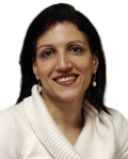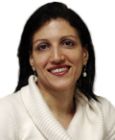Health
Nasty surprises, or - what would Jesus do
Looking the truth in the eye - whose job is it?
Posted December 21, 2009
My mom and I frequent visitors at the eye clinic. Or clinics, I should say, because we've been at it for years. Cataract when she was young, which left her with glasses as thick as the bottoms of beer bottles, if not thicker, without which she can barely see. And now, for ages, she has acute glaucoma. So acute that the drops she received were useless, and the pills that more or less managed the pressure inside her eyes were ruining her kidneys. Surgery was the only option.
The surgeon would not solve the glaucoma problem until my mom had two courses of antibiotics and preparatory surgery - removing her in-growing eye-lashes. So it transpired that the long-awaited glaucoma operation on her right eye found us listless. My mother took it with a stride though, she always does. Coming for an examination the day after the operation, her surgeon said "well, now we have to perform the same surgery on the left eye."
"What?" we said, our knees buckling. "When?"
"ASAP," he replied, acting as if we knew this all along. Logically, yes, we could have deduced that the left eye would follow, but we did not imagine it would happen instantly, not giving her time to recover. We neither planned nor prepared for it. And of course, it never occurred to us to ask. Was the second operation necessary? Certainly. Could we have profited from knowing about it in advance? Absolutely. Why didn't we ask? Because we had no clue. And not an iota of mental energy to deal with the possibility of another operation. Why didn't the doctor tell us? We will never know. He must have had his own reasons, not wanting to deal with our trepidations. Maybe he just could not be bothered.
Ten days later we were back at the clinic for the second operation. I already knew they had nice candy with the name of the office embedded in the comforting sugary makeup of the bonbon. My mom knew what tea to ask for when recovering, and with how much sugar. We thought we had all bases covered. But when her doctor examined her briefly before the operation, she left his office shaking, no longer able to soldier on. "The operation will not improve my eye sight," she said. It came as a shock to her.
"We're doing it so you don't lose the eye," I tried consoling her, but to no avail.
"I thought I'd see better," my mother repeated, missing things which we consider trivial, such as reading a newspaper, not just the big letter headlines, or deciphering a phone number without the help of a magnifying glass. Her doctor never said her vision would improve. She never asked. But she assumed, or maybe hoped the result would be better. Then, when he finally volunteered the information, my mom was shattered.
Nowadays patients are expected to participate in decision making, to partake in the care and to take charge of their own recovery. But patients, being people, are fallible. They want to know the truth, but they also want the truth to be good and reassuring. So they sometimes assume, rather than inquire. They may be too bewildered, too preoccupied with the present, to inquire about the future. The one person whose job it is to remain levelheaded is their doctor - who is neither bewildered nor afraid. And if doctors expect patients to participate, it is up to the doctors to acknowledge the assistance patients need - the guiding questions they should be asked, the information they should be provided with, even if they are currently oblivious.
So, while doctors can pretend they did all they could in answering the patients' questions, they might consider taking a more Christian approach in order to truly empower patients. If you're a doctor - whenever a patient neglects to ask something they should know - do tell them. And if you're not sure whether it's worth the trouble, show some empathy, for God's sake. Just ask yourself- even if you are Jewish, atheist, Muslim or Hindu - what would Jesus do.


